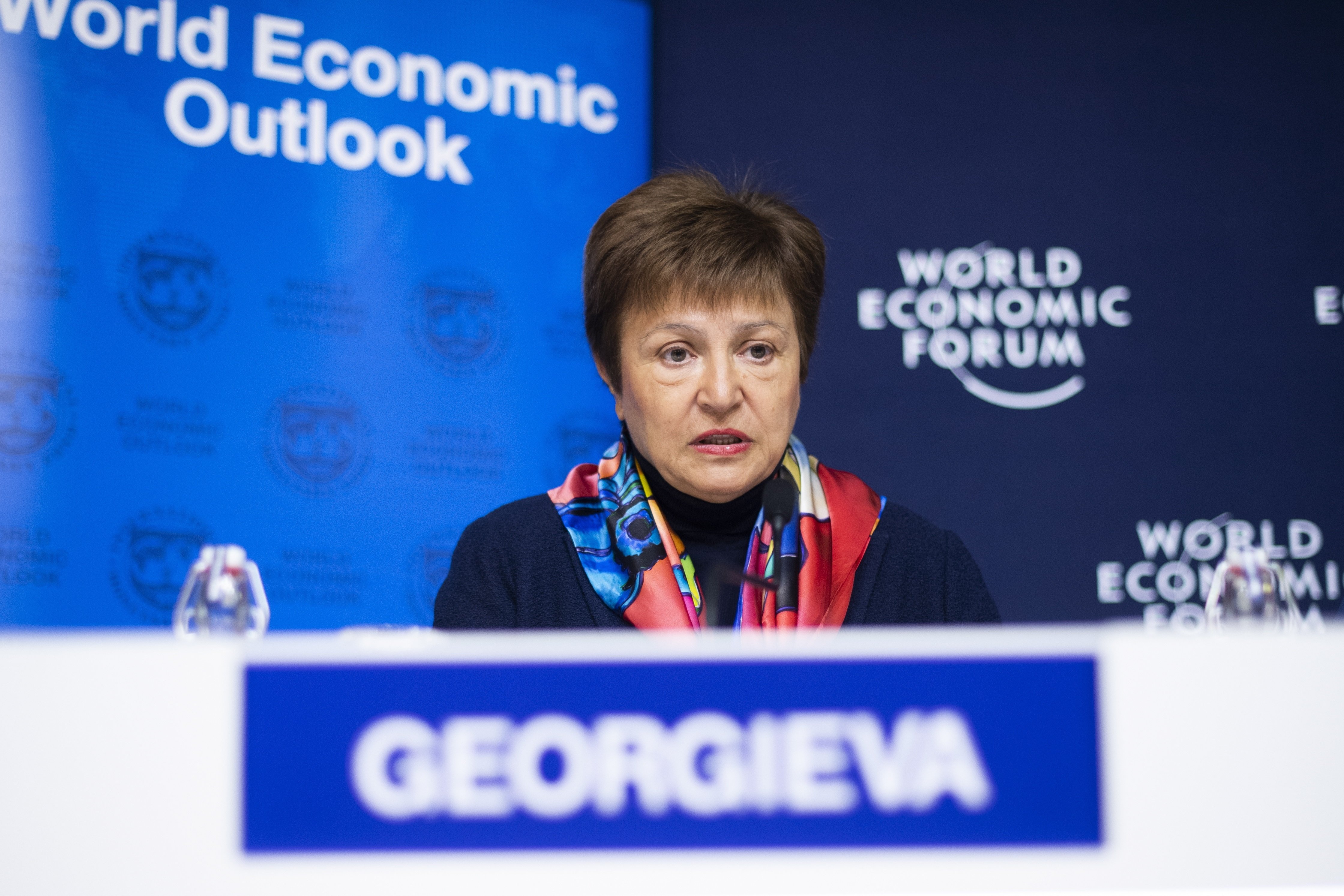The International Monetary Fund (IMF) has updated its economic forecasts for this year and 2021, and has improved its short-term predictions compared to those it made in June, for all developed economies except Spain. In the case of Spain, the IMF maintains its estimate of a 12.8% fall in GDP this year, although it believes that in 2021 the economy will rebound more strongly - surging upwards 7.2% compared to the 6.3% it calculated in June. In the updated forecasts released this Tuesday, the institution headed by Kristalina Georgieva is more pessimistic than the Spanish government about the figures for this year. Deputy prime minister responsible for the economy, Nadia Calviño announced last week that the executive had deepened its forecast of GDP collapse this year, from the 9.2% calculated in April to 11.2%.
Thus, the forecast places Spain as the economically hardest-hit country among all the world's advanced economies, in terms of fall in 2020 GDP. Behind Spain are Italy (with a contraction of 10.6%) , France (-9.8%) and Germany (-6%), a situation attributable in all cases to the impact of the Covid-19 pandemic, according to the IMF's October update on its World Economic Outlook.
Joblessness: double the average of advanced economies
In addition, the report also places Spain as one of the two European Union member states with most jobless in 2020, just ahead of Greece. Despite the economic upturn in 2021, which will be driven by European funds that are set to begin arriving next year, the IMF predicts unemployment will not fall. With a rate of 16.8% for Spain, unemployment will be more than double that of the average of the advanced economies of Europe and almost eight points higher than the average of the eurozone.
In addition, according to the IMF, up to 40% of employment by SMEs in the restaurant and hospitality industry is in danger - not directly due to lockdown, but rather to the financial problems that these companies will have to face as a result of the crisis. In quarterly terms, looking at the estimate for the last three months of 2020, Spain also comes out badly. The year-on-year fall for the final quarter is expected to be 10.8%, compared to an 8% drop in Italy, 6.7% in France and 5.2% in Germany.
Estimates raised for all other developed countries
For all the rest of the world's major economies, the fall in economic activity until Chirstmas is expected to be a little less painful than the estimates made in June, says the World Economic Outlook report. The IMF states that it projects "a slightly less severe recession than in our June forecast due to three factors: second-quarter GDP results in the major advanced economies, which were not as negative as projected; the return of China to growth, which has been stronger than expected, and signs of a faster recovery in the third quarter."
The new annual forecasts improve the figures expected for large economies, such as Germany, where GDP will fall by 6% - two decimal points less than expected in June - or France, whose economy is still calculated to fall by 9.8%, but in June, the fall was expcted to enter double figures at 10.1%.
World GDP will fall by 4.4% this year and will then rise by 5.2% next year, says the IMF. This new forecast improves by the 2020 global estimate by 0.8%, but worsens that of 2021 by 0.2%.
Main image: Director of the International Monetary Fund (IMF), Kristalina Georgieva. Photo: Efe / Gian Ehrenzeller / Archive

